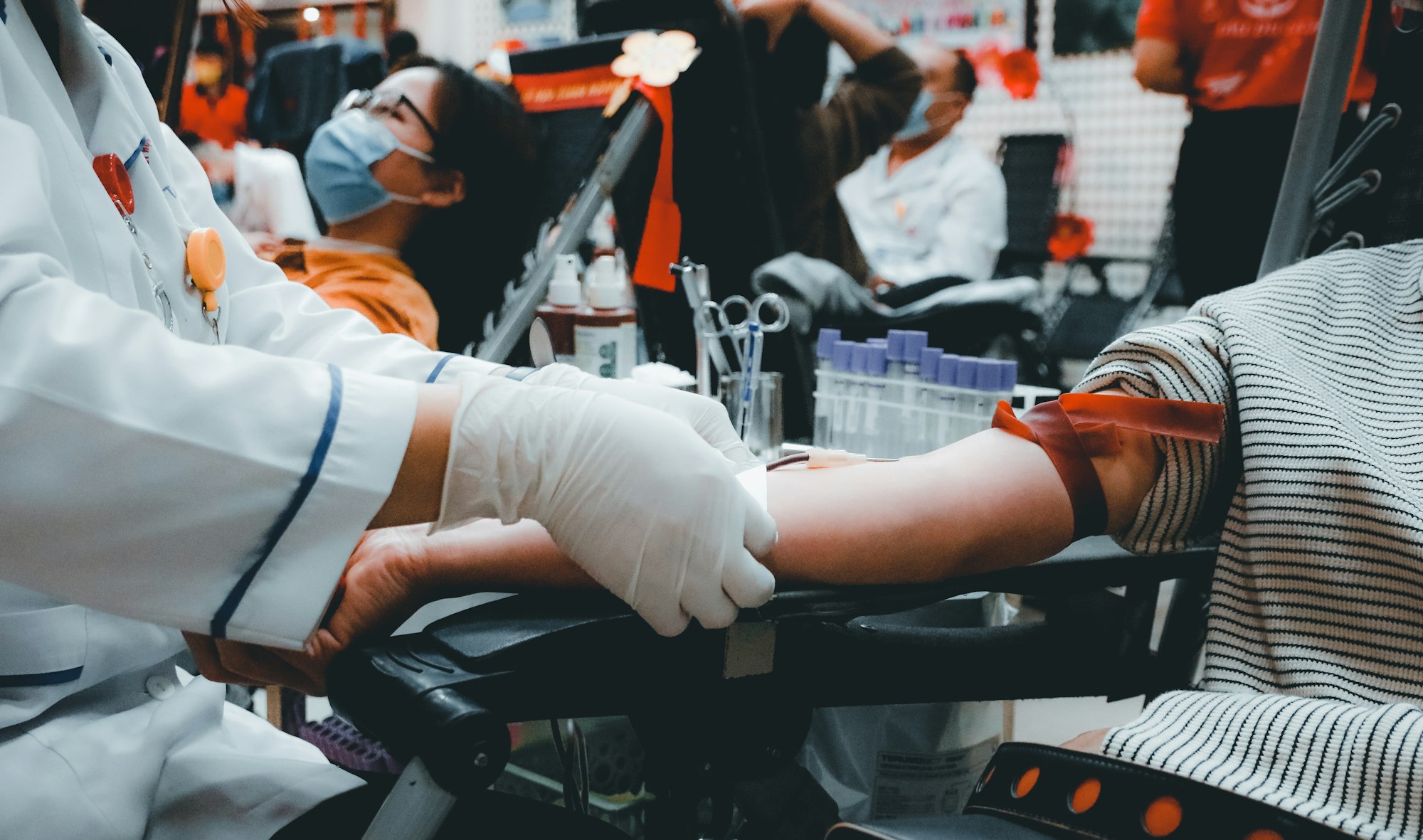Can You Donate Plasma While Breastfeeding?
Some mothers worry that the anticoagulant (which prevents clotting while donating blood) will contaminate their breast milk, but anticoagulant molecules cannot enter the breast milk.

Breastfeeding mothers are mostly advised not to donate plasma for at least six months after giving birth. This period allows your body to heal and restore hemoglobin, iron, plasma, and protein levels to normal again. Some countries, such as the Australian Red Cross Blood Service, advise mothers to wait nine months or until their babies are weaned before donating blood.
Some mothers worry that the anticoagulant (which prevents clotting while donating blood) will contaminate their breast milk, but anticoagulant molecules cannot enter the breast milk.

Things to Consider
- A mother should not donate blood if she is dehydrated. Nursing demands larger than normal fluid levels, and plasma donation can increase dehydration levels. Blood donation takes about 500ml (16 ounces) of blood from the body. Increased dehydration could cause vein clotting, vomiting, and severe headaches. How much water should you drink while breastfeeding? Drinking extra water a few hours before and after donating will also help to prevent weakness, headaches, and nausea.
- You should not donate blood plasma if you have a low milk supply. Donating plasma could temporarily affect your body's fluid levels, which could, in turn, affect your milk production. It is important to ensure that your milk supply is also well-established and to have a backup supply of breast milk available in case of any decrease. When considering donating blood, ask yourself if you have enough pumped milk in the freezer, if your baby will take expressed milk or a bottle, and if a slight reduction in milk supply will significantly impact your baby.
- As a breastfeeding mother, it is always important to maintain a healthy diet. However, it becomes especially crucial in the days leading up to your plasma donation. While you should continue to consume foods that support milk production, having a balanced and nutritious meal beforehand is essential to ensure you have enough energy to avoid feeling dizzy or faint. Opt for foods high in protein and iron and low in saturated fat and sugar on the day before and the day of your donation. Avoid consuming caffeine and alcohol during this time.
- Another concern for breastfeeding mothers is iron deficiency. Those who are anemic are not allowed to donate blood. According to research, 22% of first-time breastfeeding mothers are anemic. Blood loss can occur during childbirth which can cause anemia.
- If you have had any adverse reactions after donating, stop donating.
- It is important to be mindful of your donor arm and avoid lifting heavy objects with it. This is because some women may find it difficult to maintain their preferred nursing position if their donor arm is sore or weak.
Donating plasma can sometimes cause mild side effects, such as bruising, pain, or a burning sensation at the needle injection site. It is also common to feel dizzy, lightheaded, or have a headache afterward. These side effects generally resolve on their own within a short period of time. However, if you experience more serious side effects, such as fainting or difficulty breathing, it is important to contact your healthcare provider immediately. These symptoms could be a sign of a more serious issue.

Tushbaby Hip Carrier
With its ergonomic design and comfortable waistband, Tushbaby provides optimal support for both you and your baby, allowing for bonding on the go. Say goodbye to shoulder and back pain from traditional carriers, as Tushbaby evenly distributes your baby's weight, relieving strain and promoting better posture.
Can I Breastfeed Right After I Donate Plasma?
It is safe to breastfeed right after donating plasma. Breastfeeding can actually help your body replace the plasma that you donated. You might experience some bruising or soreness around the breasts for a couple of days after donating.
Every person is different, and it is important to listen to your body and consult your healthcare provider if you have any concerns. They can provide you with personalized advice based on your individual circumstances.
Conclusion
In conclusion, it is possible to donate plasma while breastfeeding. The act of donating blood can be very fulfilling, as one pint can potentially save up to three lives. Not only is it an opportunity to assist others, but it can also be a source of additional income. However, it's crucial to ensure that you are physically fit to donate and familiar with the steps involved. If you're thinking about donating, it's recommended to consult with a healthcare professional first. To prepare for the donation, make sure to consume a nutritious meal and hydrate adequately. After the donation, it's advisable to take it easy and rest to ensure that your health is not compromised.
